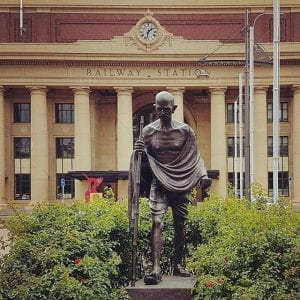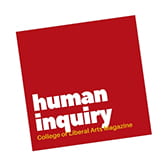A lot of what we know about Gandhi’s early life is generally pulled from autobiographical accounts. Unfortunately, these sources describing his life stories are problematic because they are told by a potentially unreliable narrator–namely, Gandhi himself.
In a new article, “The Mahatma and the Missionary: Gandhi’s Conflicting Accounts of His First Encounter with Christianity” published in the Journal of Colonialism and Colonial History, Leah Renold, associate professor of history, argues that one neglected source, Joseph Doke’s M.K. Gandhi: An Indian Patriot in South Africa, helps us better understand Gandi’s early encounters with Christianity.
Doke’s book was one of the first biographies to which Gandhi himself contributed. It presents a differing narrative that challenges the image we have of Gandhi and landmark events in his life, such as Gandhi’s first meeting with a Christian missionary in Rajkot. The book describes Gandi’s experience with Christian missionary later in his life. He saw missionary’s mistreatment of an unnamed convert, which led him to develop a disdain for the religion. Despite a letter from the missionary in question in which he categorically denies Gandhi’s account, Gandhi stuck to his narrative.
Renold writes that “Gandhi obviously crafted the accounts of his life in an attempt to influence public perceptions. The Mahatma was an admirable man in many ways, but he was also a consummate political strategist and his own self-publicist, who knew how to use the printed word to the best effect.” The discrepancies between Gandhi’s own accounts and those of other biographers play an important part in challenging readers to be critical and analytical of claims and retellings of history, regardless of who the subject is.

